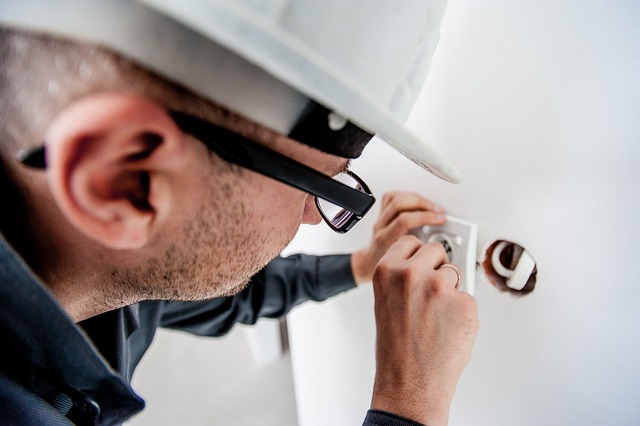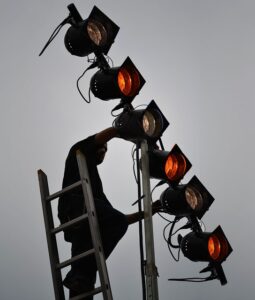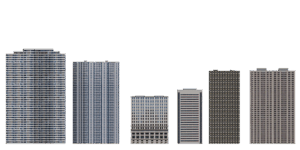Safety and Standards: Navigating Building Codes and Electrical Inspections
Electricians and electrical inspectors play a critical role in ensuring the safety, compliance, and functionality of building electrical systems by adhering to the National Electrical Code (NEC) and other relevant codes. These professionals are responsible for designing, installing, and maintaining…….

Electricians and electrical inspectors play a critical role in ensuring the safety, compliance, and functionality of building electrical systems by adhering to the National Electrical Code (NEC) and other relevant codes. These professionals are responsible for designing, installing, and maintaining electrical systems, which involves rigorous adherence to safety standards to prevent fires, electrocutions, and other electrically-related hazards. Electricians not only ensure that systems meet minimum safety requirements but often exceed them to enhance public welfare. Electrical inspectors complement the work of electricians by thoroughly reviewing design plans and overseeing installation processes to ensure all components comply with local, state, and national codes. Their expertise is crucial for identifying potential issues before they become problems, thus preventing costly errors or legal repercussions. The ongoing collaboration between electricians and inspectors ensures the continued safety of electrical systems within buildings, thereby protecting individuals and communities from harm. This synergy is essential for maintaining the integrity and efficiency of electrical infrastructure in both new constructions and existing structures.
Ensuring the safety and compliance of buildings is a critical aspect of construction and maintenance, particularly in the realm of electrical systems. This article delves into the intricacies of building codes, the pivotal role of electrical inspectors, and the key areas they focus on to safeguard lives and properties. From understanding the significance of these codes to exploring the latest technological advancements in inspection practices, each section is designed to provide a comprehensive guide for electricians, building contractors, and homeowners alike. We will examine common violations, the importance of regular inspections and maintenance, and the best practices for installations in new constructions. Additionally, we will navigate the legal landscape of electrical safety and discuss the training and certification essential for professionals in this field. Real-world case studies underscore the necessity of adherence to these codes, while tips on how to ensure your property meets all electrical requirements will be invaluable. Non-compliance with these standards can have serious repercussions, making this article an indispensable resource for anyone involved in the built environment.
- Understanding Building Codes and Their Importance for Safety and Compliance
- The Role of Electrical Inspectors in Ensuring Code Compliance
Understanding Building Codes and Their Importance for Safety and Compliance

Understanding building codes is a cornerstone in ensuring the safety and compliance of structures, particularly with the intricate workings of electrical systems that an electrician must navigate. These codes, developed by organizations such as the National Electrical Code (NEC), serve as a benchmark for safe construction and installation practices within buildings. They address the design, installation, and maintenance of all electrical wiring, components, and equipment to prevent fires, electrocutions, and other electrically-related hazards. Electricians play a critical role in this process, as they are tasked with applying these standards during their work, which includes everything from new construction to renovations or repairs in existing buildings. Their expertise is indispensable in interpreting the nuances of the codes to guarantee that all electrical systems not only meet but exceed the minimum safety requirements set forth. This adherence to code is not just a compliance matter; it is a safeguard against potential tragedies and a means to protect the public from the dangers associated with improperly installed or maintained electrical systems. Consequently, the electrician’s knowledge of building codes is paramount to the integrity and functionality of modern buildings. It ensures that the infrastructure within is safe for occupants and compliant with legal and safety standards, which is essential for both the immediate and long-term well-being of individuals and communities alike.
The Role of Electrical Inspectors in Ensuring Code Compliance

Electrical inspectors play a pivotal role in safeguarding the safety and integrity of electrical installations within buildings, ensuring they adhere to established electrical codes. These professionals are responsible for reviewing plans and designs submitted by electricians to verify that all wiring, fixtures, and equipment comply with local, state, and national electrical codes. They meticulously examine the installation of electrical systems during both the construction phase and after completion, using specialized knowledge to detect potential hazards such as overloaded circuits, improper grounding, and inadequate protective devices. Their expertise is crucial for preventing electrical fires, minimizing the risk of electrical shocks, and ensuring the efficient operation of electrical systems. By conducting these inspections, electrical inspectors provide a critical layer of oversight that protects both property and people from the dangers associated with non-compliant electrical installations.
The collaboration between electricians and electrical inspectors is essential for maintaining the highest standards of safety in building operations. Electricians, who are tasked with the installation and maintenance of electrical systems, must work in concert with these inspectors to ensure that their work meets the required specifications. Electrical inspectors provide feedback and guidance on code compliance, offering a professional assessment that can prevent costly mistakes and legal issues related to unsafe or non-compliant electrical work. Through this ongoing process of inspection and correction, electrical inspectors uphold the integrity of electrical systems and contribute significantly to public safety, making them indispensable in the built environment.
Ensuring the safety and compliance of buildings is paramount, as detailed in this discussion. Building codes serve as a critical framework for safety standards, and electrical inspectors play an indispensable role in upholding these regulations. The diligence of these professionals, often including electricians who specialize in inspection services, is essential to maintaining the integrity of our structures and protecting occupants from potential hazards. Adherence to these codes not only aids in preventing electrical fires and accidents but also contributes to the longevity and efficiency of building systems. It is through rigorous inspections and adherence to best practices that we safeguard public well-being and compliance with necessary safety standards.







